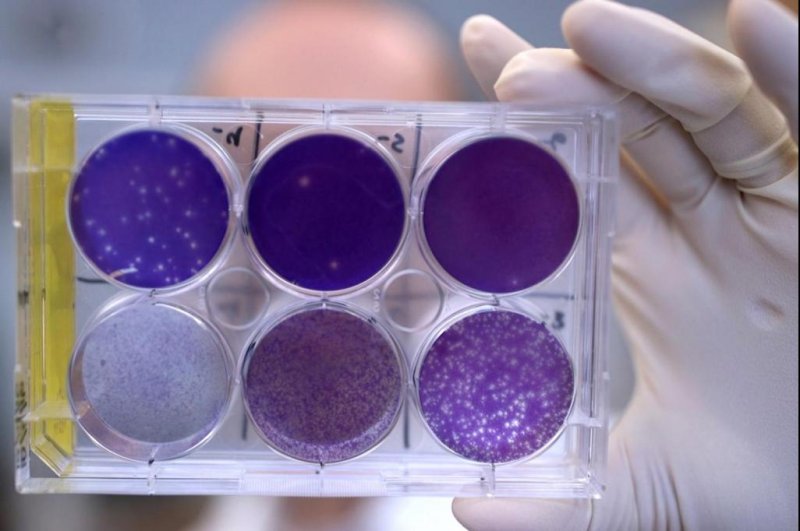Scientists say their treatment protected mouse fetuses as well as pregnant mothers from Zika infection. Photo by Washington University School of Medicine.
ST. LOUIS, Nov. 7 (UPI) -- A collaborative research team identified a human antibody capable of protecting a developing fetus from a Zika virus infection in a recent study.
The team was comprised of scientists from Washington University School of Medicine and Vanderbilt University School of Medicine. According to their findings, published in the journal Nature, the antibody was able to protect both the fetus and the adult mother from the Zika infection.
"This is the first antiviral that has been shown to work in pregnancy to protect developing fetuses from Zika virus," researcher Michael Diamond said in a press release. "This is proof of principle that Zika virus during pregnancy is treatable, and we already have a human antibody that treats it, at least in mice."
Researchers isolated human monoclonal antibodies from subjects with a prior Zika infection, and tested them on pregnant mice the day after or the day of infection. The antibody significantly reduced levels of the virus in pregnant females as well as their fetuses.
The antibodies were also found to protect female placentas. When compared to a control group which did not receive treatment, placentas from the experimental group appeared normal and healthy.
"The anti-Zika antibodies are able to keep the fetus safe from harm by blocking the virus from crossing the placenta," Diamond added. "We stacked the deck against ourselves by using a highly pathogenic strain of Zika, and even in that case, the antibody protected the mice."
Zika is a viral infection typically spread through the bite of an infected Aedes aegypti mosquito. It can also be passed from a pregnant woman to her fetus, causing microephaly, or an abnormally small head. Scientists have been working to develop a vaccine since an outbreak of the disease was reported in 2015.















